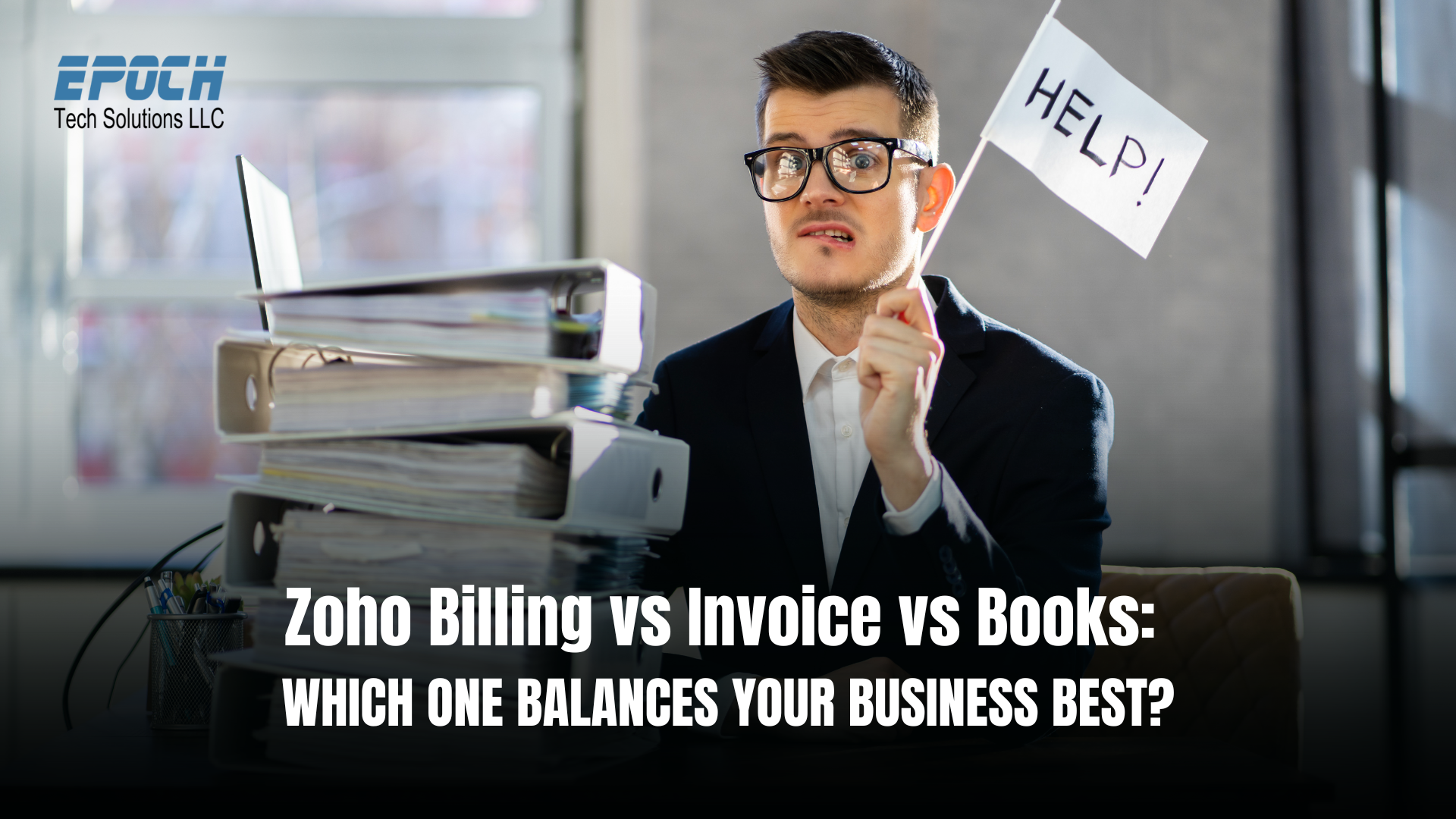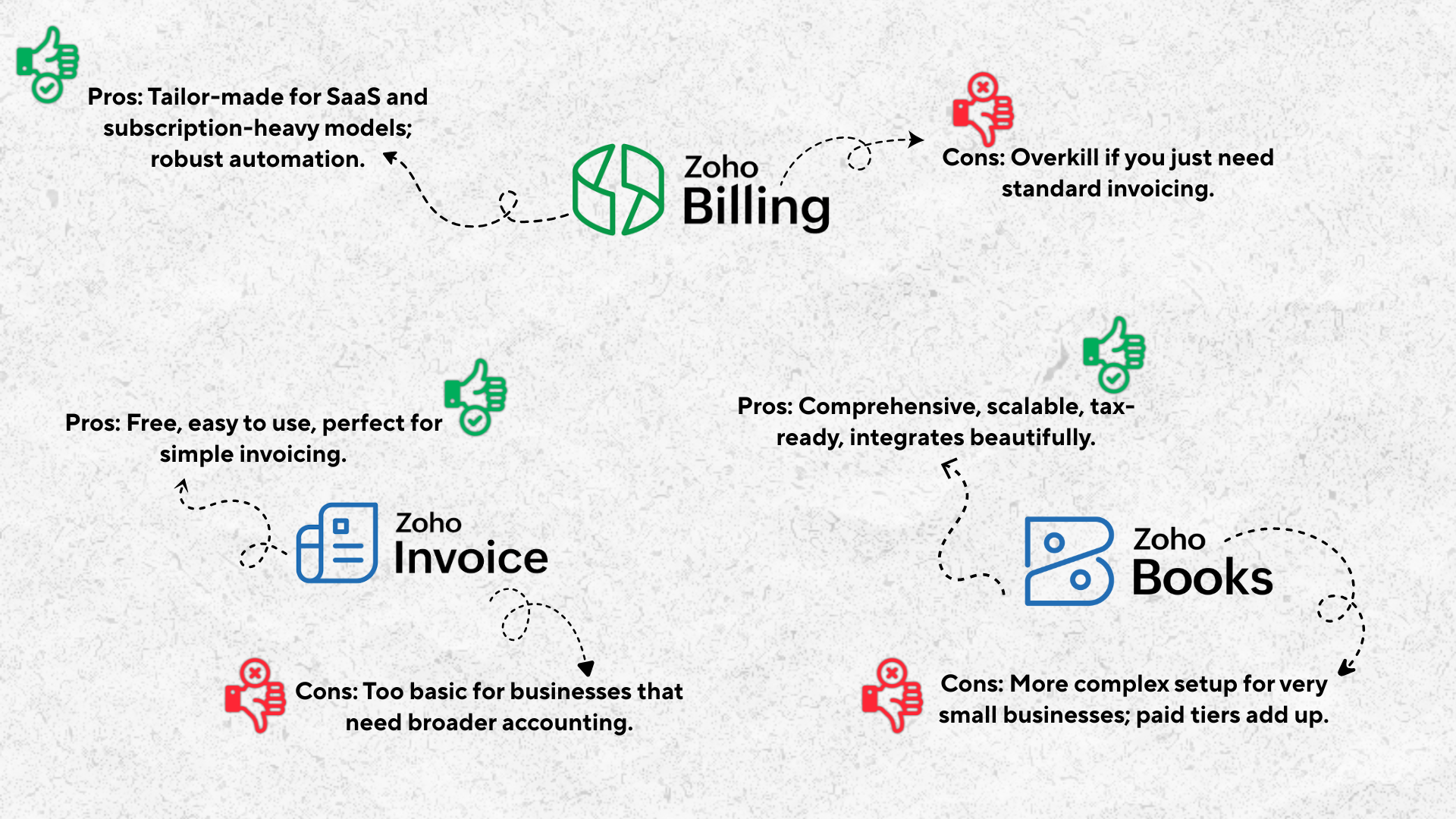
Not too long ago, managing business finances looked like chaos in a spreadsheet, endless tabs, coffee-stained receipts stuffed in drawers, and late-night calls to accountants who probably knew your stress levels better than your doctor. Then cloud finance software showed up. Suddenly, the mess started to make sense, payments got automated, books balanced themselves, and tax season stopped feeling like a yearly horror film.
And within this new world of cloud solutions, Zoho wears many hats. But the challenge? Figuring out which Zoho hat fits your head: Zoho Invoice, Zoho Books, or Zoho Billing. Same family, three personalities. Let’s unpack them.
Clean, intuitive, and hassle-free. It’s the go-to for freelancers and small businesses that just need to create and track invoices without a full accounting suite. You get quotes, delivery challans, customizable templates, online payment options, and automated reminders.
Zero dollars. Forever free. Accessible across devices, it’s perfect for entrepreneurs who like their software like their coffee: simple and no hidden charges.
Think of Zoho Books as Zoho Invoice after it hit the gym. It handles invoicing and expense tracking, tax compliance, profit and loss reports, balance sheets, and even integrates with multiple gateways. It’s the tool that turns financial chaos into an organized dashboard.
Starts from about $15/month. Mobile apps for Android and iOS keep your books balanced even when you’re away from the desk.
If your business runs on subscriptions, this is your champion. It’s designed for recurring revenue, with tools for subscription management, dunning (failed payments), trial management, multi-currency support, and customer portals. In other words, it babysits your SaaS revenue so you don’t have to.
Starts around $20/month, scaling with features. Fully mobile-ready, so you can track subscription payments while standing in line for your latte.

A freelance designer shared how Zoho Invoice became their secret weapon, no more chasing payments, no more unpaid invoices forgotten in email chains.
Meanwhile, a mid-sized retail store said Zoho Books helped them cut reconciliation time in half, thanks to seamless banking integrations and tax-ready reporting.
And a SaaS startup swears by Zoho Billing, claiming it helped reduce churn by automating follow-ups on failed payments and managing trials.
If invoicing is your only pain point, stick with Zoho Invoice: it’s free, lightweight, and effective.
If you need a complete financial brain, Zoho Books gives you accounting depth without losing simplicity.
But if your business heartbeat is subscriptions, Zoho Billing is the no-brainer, it automates what humans usually mess up.
The moral? Same family, three specialties. Choose the one that aligns with your business DNA.
Contact Epoch Tech Solutions today for a free consultation.
#softwarereview #epochtech